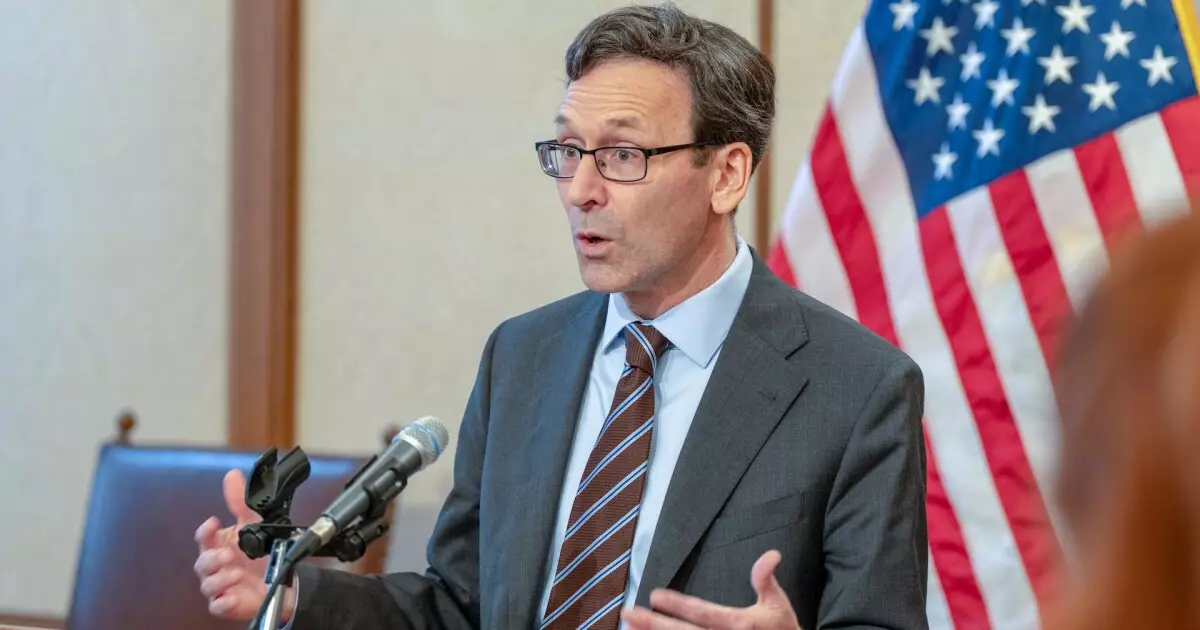The recent decision by the Federal Emergency Management Agency (FEMA) to deny disaster recovery funding requests from Washington and North Carolina is a distressing reminder of the challenges that both citizens and local governments face in the wake of devastating natural disasters. Such denials, especially after significant state-level efforts to meet FEMA’s criteria, raise questions about the agency’s commitment to fulfilling its mission. With life-altering devastation from storms like Hurricane Helene and the bomb cyclone that hit Washington, both states are left reeling not just from the physical destruction, but also the bureaucratic indifference that follows. This unsettling trend reveals the weaknesses in an essential federal agency, often viewed as a lifeline during calamities.
The Undeniable Human Cost
The human tragedies that emerge from natural disasters cannot be understated. In Washington, residents grappled with a bomb cyclone that not only claimed lives but caused extensive property damage and loss of electricity for hundreds of thousands. Similarly, in North Carolina, a record 100 fatalities were attributed to Hurricane Helene. As both governors, Jay Inslee and Josh Stein, highlighted, the need for immediate assistance is dire—impacting everything from debris removal to the fundamental rebuilding of homes and infrastructure. Yet, FEMA’s refusal to grant additional funds implies a striking disconnect between policymakers and the real-life suffering of individuals in these communities. The bureaucracy seems far removed from the catastrophe’s realities, prioritized over the urgent human and infrastructural needs on the ground.
FEMA’s Questionable Decision-Making Process
What warrants FEMA’s denials? Both Washington and North Carolina’s governors insisted that their applications met all legal and administrative requirements for federal aid. This discrepancy creates a baffling narrative where state officials feel compelled to request funds that should already be available to them. The lack of transparency surrounding these denials stirs feelings of distrust and disappointment. When states invest their own limited resources—in Washington’s case, $1 million allocated by Governor Inslee—the expectation is that the federal government will step up to complement those efforts. Instead, they face a seemingly arbitrary negation of need.
The Political Dimensions of Federal Disaster Relief
Politically, the denial of necessary funding has reverberations that extend beyond the immediate financial implications. With both governors being Democrats, it raises the question of whether political affiliations influence FEMA’s decisions—whether overtly or subtly. With the agency having been subjected to significant restructuring under the previous administration, concerns emerge about its overall vitality and responsiveness. The potential lack of unbiased treatment in distributing aid fosters suspicion and lobbying efforts that further stratify political lines. Citizens’ recovery efforts become tragically enmeshed in partisan politics, where the true victims—the residents awaiting aid—remain voiceless.
The Call for Re-evaluation and Increased Accountability
Among the most troubling aspects of FEMA’s stance is the apparent lack of accountability, not only to the states but also to the families whose lives have been disrupted. The agency’s decisiveness has granted them a shield against criticism, even when they act against the interests of those they were created to assist. As evident from the reactions of both Inslee and Stein, the need for FEMA to re-evaluate its processes and decision-making criteria is palpable. Restoring faith in this pivotal agency requires more than just reassurances; it necessitates a revamping of its operational ethos, ensuring that the voices of the affected states are not drowned out by bureaucratic red tape.
Empowering States for Future Resilience
Washington and North Carolina’s challenges illustrate the essential need for a systemic reform of disaster relief protocols. The narrative underscores a growing call for greater empowerment of state governments in disaster response scenarios. With climate change intensifying the severity of weather events, reliance on an often slower federal response may no longer suffice. States must be equipped with the means to respond independently while still anticipating federal support as the backup option. The federal government’s role should not be to grant or withhold relief but rather to provide a robust framework for states to recover swiftly and effectively.
As discourse around FEMA’s inadequacies continues, a bipartisan effort must take shape to reform how disaster recovery is funded and managed, ensuring that future responses are quicker, more compassionate, and less tangled in political agendas. In this critical time when communities need support the most, their voices must not be lost to bureaucracy.


Leave a Reply